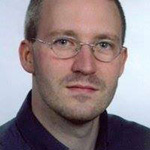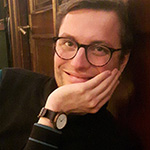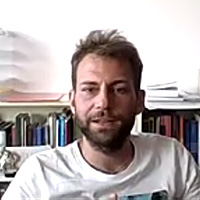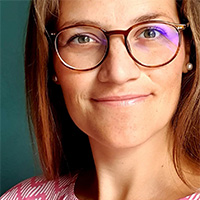4 November, 18:00-20:00
Church and Identity
Local congregation – national church – Europe
Theological and Sociological Aspects

General Secretary Dr. Mario Fischer (CPCE)

Lukas David Meyer (Ludwig-Maximilians-University Munich)
Churches mould social processes. On the one hand, they have an impact on the identities of their members in terms of origin and confessional and ethical affirmation. On the other hand, churches themselves are actors who help shape societies and behave towards other forms of social organisation (civil society, states, movements). While on the local and national level Protestant churches play an important role in moulding societies, churches on the European level have yet to find their place.

Summary 1
by Marcus Hütter (CPCE)
The first speaker of the evening was Dr. Mario Fischer, General Secretary of the Community of Protestant Churches in Europe (CPCE). He describes churches as relational buildings and they are part of the society. Since times of the reformation Protestant churches are national rooted. But the models of society are divers and complex and so are the churches. The CPCE therefore can be seen as an example for unity in reconciled diversity. Volkmar Ortmann from the Protestant Federation of Hesse was the moderator. He has a lectureship at the Justus-Liebig-University in Gießen.

Summary 2
by Mirjam Sauer (Evangelischer Bund)
The second speaker, Lukas Meyer, outlines ethical statements of the CPCE, the EKD and the Reformed Church in Hungary. The focus is on statements in the context of the European constitutional crisis, financial crisis and migration crisis. It becomes clear that in the statements of the EKD and the positions of the Reformed Church in Hungary the national church contexts and interests remain clearly recognizable. Finally, he calls for a more committed Protestant social ethics. He states: Local social ethical engagement has the potential to initiate the needed change in the ethical debates in European Protestantism.